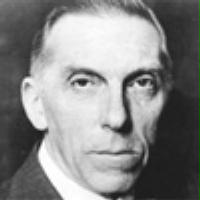|
A free-flowing effortlessness

Roger Quilter was born on 1. November 1877 in Hove, Sussex. One of the most successful and prolific of English song writers.
He studied privately with Iwan Knorr at the Conservatory in Frankfurt, where fellow students included Grainger, Scott,
Balfour Gardiner and O'Neill. Between 1900 and 1910 leading vocalists including Denham Price and Gervase Elwes took his
songs into their repertoires, and his music quickly became popular with Edwardian public. Roger Quilter's Songs demonstrated
a refined development from Victorian drawing room ballads. Principal influences were Schubert, Schumann, songs of Maude
Valérie White, and French mélodies, particularly those by Fauré. A pivotal figure for generation of interwar song composers
including Peter Warlock. Orchestral works, conducted by Henry Wood at Promenade Concerts,
soon became light music favourites * Made many arrangements of traditional songs including those in The Arnold Book of Old Songs (1947). Master of lyrical line, sensitive accompaniment, and precise verbal accentuation. A composer who wrote exclusively for song not well known outside the rarefied world of 'Art Song' (classical song), his
favourite poet was Shakespeare, and his settings are masterly and beyond compare. The music is complex, beautifully melodic,
and encapsulates all that one would imagine of 'Englishness' in those times before and between the two world wars, when there
was an innocence which emanated from English hedgerows and fields. He was homosexual, devastated by the death in WWI of his
favourite nephew, and died insane on 21 September 1953 in London, England
|
 |
|
a biography
by Valerie Langfield
a superb biography of
an often ignored composer
of elegant English songs
|
 |
|
|
 |
|
|
|

